Chris McCausland and Dianne Buswell’s waltz on BBC1’s ‘Strictly Come Dancing’ is up for the memorable moment award


Chris McCausland and Dianne Buswell’s waltz on BBC1’s ‘Strictly Come Dancing’ is up for the memorable moment award

Dressed in their best, the UK’s biggest stars are about to hit the red carpet for the Bafta TV awards.
Hosted by actor Alan Cumming at the Royal Festival Hall in London on Sunday (11 May), the ceremony is designed to celebrate the standout productions of 2024 and the creative teams who helped to make them.
Among the programmes likely to be in the spotlight is Baby Reindeer, which has received nominations in categories including those for leading actor (for Richard Gadd) and supporting actress (for both Jessica Gunning and Nava Mau). But the story about a man and his stalker is facing tough competition – not least from real-life drama Mr Bates vs The Post Office
In early 2024, the televised story of Alan Bates and the hundreds of subpostmasters and sub-postmistresses

who were wrongfully accused of fraud, theft and false accounting made national headlines, prompting comment even from prime minister Rishi Sunak, who – after watching the drama – referred to the scandal as ‘an appalling miscarriage of justice’.
One particularly gripping scene in the series – in which sub-postmistress Jo Hamilton (played by leading actress nominee Monica Dolan) phones a helpline – is up for the Bafta TV memorable moment award. The panic on Jo’s face when her computer highlights an account shortfall of £4,000 is palpable. But such a discrepancy proves to be only the start of her financial troubles.
Other memorable moments nominated include the ‘You’ll Never Walk Alone’ waltz by comedian Chris McCausland and dancer Dianne Buswell on Strictly Come Dancing, and the moment when Mick stands up at Smithy’s wedding in Gavin and Stacey: The Finale
Whether they made audiences gasp, laugh or cry, these are moments singled out by Bafta for capturing the nation’s attention. And it’s the only award of the evening in which the winner is chosen by a public vote.
Perhaps, as viewers are invited to reflect on some of the most popular programmes of the past year, their minds will turn to the dramas and memorable moments of their own lives.
Maybe we smile recalling the birth of a child or cry as we remember the loss of a parent.
There are also countless people across the world who would attest to having experienced the memorable – and life-changing – moment of becoming a Christian.

Leading actress nominee
Deciding to follow Jesus means that we are invited to look at the world through a new lens. He asks us to love not just our friends, but our enemies. He challenges us to stop judging people. He encourages us to share everything we have with those who have nothing.
It’s not always easy – but Jesus also promises that those who follow him, say sorry for their past mistakes and put their trust in him for the future will receive God’s love, forgiveness and help to live a better life.
To those at the crossroads, wondering whether or not to turn to him, Jesus promises ‘I came to give life with joy and abundance’ (John 10:10 The Voice). It means that, when we put our faith in him, we have everything we need. We have hope in times of trouble, peace in times of despair and love in times of hurt.
The day we make the decision to follow Jesus has the power to change us, our life and our story – not just today, but for every moment after.
Sarah Olowofoyeku gives her take on a story that has caught the attention of War Cry reporters
Anger has been growing since 2016, noted Roisin Lanagan in The Independent. In an article headlined ‘The world has become addicted to rage’, Roisin cited the Global Emotions Report, published by polling company Gallup, which found that anger has been on the rise, and that 17 per cent of UK respondents reported feeling angry every day.
After describing one celebrity’s rage-filled guest appearance on a podcast, and people’s rage-filled responses to it, she asked: ‘Why do we let ourselves get so caught up in these kinds of arguments, which are essentially arguments over nothing?’
There are, of course, some real problems in this world. But a lot of the anger surrounding such valid issues is fuelled by hatred, pride and hard-heartedness.
Roisin recounted the UK’s divisive 2016 referendum on EU membership, and recalled mounting polarisation in the population that then became contained as we were all forced into pandemic isolation. She explored how rage is manifested both online and offline, with people seething in comment sections and sometimes spilling out on the streets ‘to attack and destroy’.
And if we’re honest with ourselves, much of the anger being expressed feels quite destructive and seems to be leading only to more division and despair.
The truth is that, while statistics show that current levels of rage are high, humanity has been angry for a very long time – since we separated ourselves from God by turning away from him.
So, the antidote is to turn back to God and to admit that we need help. I write this as someone who used to be pretty angry. I had terrible road rage and was growing increasingly indignant about injustice. But I noticed a change in me when I asked God for help.
I believe that he answered me when I first became a Christian – by freeing me from the power that anger had over me. But I also believe that when I asked for specific help – something I still do regularly – God began the daily work to soften my heart, enabling me to choose his way when I am tempted to choose my own.
In a rage-addicted world, it’s his path that leads to hope and peace.
Seventy-year-old US pastor Max Lucado got his first tattoo to celebrate his 50th anniversary of becoming a Christian.
Posting on his Instagram account, Max described how the message of Jesus’ sacrificial death transformed his life when he was 20 years old. He described his younger self as a ‘scoundrel’ whose life changed after he heard a preacher’s message about grace.
The tattoo is of the Greek word ‘tetelestai’, which means ‘it is finished’ – a reference to Jesus’ final words on the cross, indicating that his mission had been completed.
‘This was the message that changed my life,’ Max said. ‘On
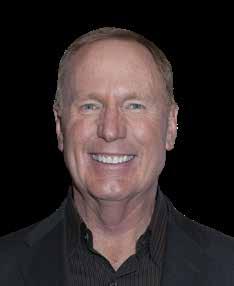

‘The fastest ones might go off, and then they’ll stop for the slow ones to catch up. And there are different ages too. We’ve got some young people who are at Bristol University, who bring a different flavour and aspect to the group.
‘I remember also that there was one older woman who had hip problems. She was talking about how much her health had improved since coming out with us. She got encouragement and confidence in walking with the group.’
Donna joined Steppin Sistas in 2022 after falling in love with walking during lockdown. But as a black woman walking alone, she felt vulnerable.
‘I would always stay local, as I had to be mindful about where I was walking,’ she says. ‘I remember walking along by the river, and a guy asked me if I was lost.
‘I didn’t always feel safe when I was in a white area. When I went over to Ashton Park by myself at one point, I clocked myself and thought: “What are you doing, a black woman, by yourself, walking in the woods? Are you crazy?”’
But discovering Steppin Sistas transformed her experience of going out
for a stroll.
‘I love having the Sistas to walk with as a group and the sisterhood that comes from that,’ she says. ‘I don’t have to explain myself. I enjoy the community, friendship and chit-chat about all sorts.
And I appreciate the way in which we’re all respectful of each other.
‘I also enjoy the sense of freedom. With Steppin Sistas, I get out to what I call “proper nature” – out of the city, places that are really secluded and where I’m able to soak in nature and feel rested and at peace.’
I can see God’s hand in the way nature connects
The two women recall the walks which they have enjoyed the most. One of Sophia’s favourite routes is Glastonbury Tor.
‘I do a lot of solo walking up there,’ she says. ‘You see a 20-mile scale of fields from the top. It reminds me of my nan, because it looks like a patchwork blanket. It’s all tidy and neat, as all the fields are
just squared off.’
Meanwhile, Donna loves walking along the Jurassic Coast.
‘It’s a real mix of environments – you can climb hills with a view or go down steps to the beach and sea.’
For Donna, who is a Christian, there’s an overlap between being out in nature and faith.
‘I can see God’s hand in everything, and in the way nature connects,’ she explains. ‘For instance, while I regard dandelions as weeds, I know the bees love them!
‘In the Bible, it talks about us humans looking after the land, and how we’re God’s most cherished creation. He has given us nature to provide for our physical, mental and spiritual needs. You can be quite down in the dumps, and yet you go out into nature for a 20-minute walk, and you feel much better.’
Donna’s relationship with faith hasn’t always been straightforward. She grew up in a Baptist church, where she attended

From page 7
Sunday school. When she was 18, she became pregnant. But when she returned to the church she grew up in, she felt judged because she was unmarried.
As a result, she became disillusioned with faith. When she embarked on fulltime further education, she became part of a group which explored the history of enslavement. She was angered by how parts of the Church were involved in the evil trade.
‘I was very anti-Christ, because as far as I was concerned, that Christ was why my people got enslaved, and social injustice not only stemmed from that, but continues from that,’ she explains.
I’ve got somebody to lean on
However, what Donna describes as a ‘life crisis’ within her family prompted her to re-evaluate her faith.
‘I felt at rock bottom,’ she says. ‘The only way I can describe it is being in the middle of the sea, with nothing concrete to grab on to.
‘My sisters were going to church and one of them said: “Have you got something that you’re anchored to? What’s your belief?” I told her: “I don’t believe in your Jesus Christ. Leave me alone, I’ll be fine.” But when I came through the crisis, I felt like I wanted to go to church. I got baptised in 2016.’
Donna says that in her relationship with God, she knows that she has ‘got somebody to lean on, someone to talk to’.
She says: ‘I have seen that God answers prayers. I’ve just come back from visiting my parents in Jamaica and one of my prayers is that they will always have the help that they need. And they are getting support left, right and centre. Every time there is something they need, somebody will go around.
‘God also answers prayers in what we think is the wrong way. For instance, I went for a job interview and didn’t get it. I can see now that if I’d got that job, it would have been awful. So even sometimes in the disappointment, God is working.’
Your prayers are requested for Jane, Jenny, Shirley and Tanya that they will have everything they need for their wellbeing as they do their good work.
The War Cry invites readers to send in requests for prayer, including the first names of individuals and details of their circumstances, for publication. Send your Prayerlink requests to warcry@ salvationarmy.org.uk or to War Cry, 1 Champion Park, London SE5 8FJ. Mark your correspondence ‘Confidential’.
Christian
There is no set formula to becoming a Christian, but many people have found saying this prayer to be a helpful first step to a relationship with God
Esther is one of only two books in the Bible not to mention ‘God’. Nevertheless it is an account of divine providence.
As it opens, Xerxes is King of Babylon. His grandfather, Cyrus, had allowed a number of Jews to return to Jerusalem to rebuild the Temple. Many Jews, though, still live in Babylon. Xerxes is throwing a public banquet. He summons his queen, Vashti, but she refuses to appear. Enraged, Xerxes dismisses her from court (chapter 1). The search for a new queen commences.
Mordecai, a Jew whose grandfather had been exiled, takes his cousin and fosterdaughter, Esther, to the court with strict instructions that she should not reveal her ethnicity. Xerxes makes Esther his queen. After overhearing conspirators, Mordecai tells Esther of a plot to kill the king. She tells Xerxes and the plotters are executed (chapter 2).
Xerxes orders his subjects to bow down to his newly appointed prime minister, Haman. When Mordecai refuses to do so, Haman issues orders for there to be a purge against all Jews (chapter 3).
Mordecai asks Esther for help, reminding her that if the king learnt about her heritage, she too would be killed (chapter 4).
Esther asks Xerxes to host a dinner with Haman as the sole guest. When Haman receives an invitation to a second such soirée, he is overjoyed, even though he is still irritated by Mordecai’s uncivil disobedience (chapter 5).
Lord Jesus Christ,
I am truly sorry for the things I have done wrong in my life. Please forgive me. I now turn from everything that I know is wrong.
Thank you that you died on the cross for me so that I could be forgiven and set free.
Thank you that you offer me forgiveness and the gift of your Holy Spirit. Please come into my life by your Holy Spirit to be with me for ever.
Thank you, Lord Jesus. Amen
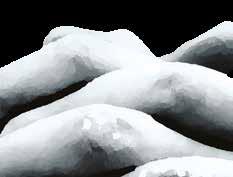

Haman plans to ask Xerxes for permission to kill Mordecai. However, in the meantime, a sleep-robbed Xerxes reads the report of how Mordecai unearthed the earlier assassination plot. With Haman ready to ask permission to kill Mordecai, Xerxes tells him that Mordecai is to be honoured for saving his life (chapter 6).
At the second supper, Esther tells Xerxes that she is a Jew and that Haman is behind the purge. Xerxes leaves the room to think. When he returns, he sees what he thinks is Haman attacking Esther. Haman is impaled on the pole on which he planned to kill Mordecai (chapter 7).
Xerxes makes Mordecai prime minister and, at Esther’s request, allows his Jewish subjects to defend themselves against the purge. The Jewish community celebrates with the feast of Purim (chapters 8 and 9).

To receive basic reading about Christianity and information about The Salvation Army, complete this coupon and send it to
War Cry 1 Champion Park London SE5 8FJ
Address


1 2 3 4 5 6
Who played the Earl of Grantham in the TV drama Downton Abbey?
Penne, linguine and orecchiette are types of what foodstuff?
Which football side have won the Scottish Premiership this season?
In what year was the internet search engine Google founded?
Which group had a No 1 hit album in 2005 with X&Y?
Which medieval author wrote the epic poem The Canterbury Tales?

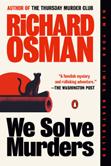

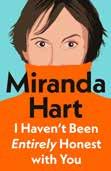
Feature by Ewan Hall
It could be the best of times for authors and illustrators this week as their books are judged, not by their cover alone, but by the stories inside, as the British Book awards are handed out on Monday (12 May).
The awards – which will be presented in a ceremony in London –celebrate the connection between a writer, their book and their audience.
Founded in 1990 by the editor of Publishing News and now run by magazine The Bookseller, the awards, also known as ‘the Nibbies’, honour literary achievement across numerous categories, including fiction, nonfiction and children’s books.
This year the shortlists include novelist Sally Rooney, who is nominated for fiction book of the year with Intermezzo, TV presenter Richard Osman, whose We Solve Murders is up for a prize in the crime and thriller category, and Miranda Hart, whose memoir I Haven’t Been Entirely Honest with You has been nominated for non-fiction narrative book of the year.
All these books – whether they be accessed on paper, digital or audio format – allow readers to relate to the highs and lows of the fictional characters or, in the case of a memoir, the author themselves.
As we read about different people and different places from the one we inhabit, we can lose ourselves in the narrative – and, in many cases, escape for a while from the stresses and strains in our own lives. When we close the book, however, we have to face our own realities again – and the challenges that they bring.
But there is one book that shows us how we can deal with whatever troubles we may be facing.
In the Bible one author writes of how God is ready to help us as we go through challenging times. He urges readers: ‘Cast all your anxiety on him because he cares for you’ (1 Peter 5:7 New International Version).
God is willing and able to help us, no matter what the stresses in our daily lives may be. If we put our trust in him, it will always be possible to experience his love and a sense of peace in every new chapter of our lives.


INGREDIENTS
METHOD
3 x 62g nests dried wholemeal rice noodles
2tbsp light soy sauce
1 lime, juice (approx 2tbsp)
1tbsp sesame oil
Black pepper, to taste
½ tsp chilli flakes
3tsp vegetable oil
8 medium eggs, beaten 2tbsp curry powder
1 medium onion, sliced
4 garlic cloves, peeled and finely diced
5cm piece ginger, grated (approx 40g)
1 red pepper, deseeded and sliced
½ sweetheart cabbage, sliced
Bunch spring onions, roughly chopped
300g bean sprouts

Prepare the noodles according to the packet instructions and set aside.
Make a sauce by combining the soy sauce, lime juice, sesame oil, pepper and chilli flakes in a bowl.



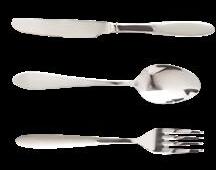
Heat 1tsp vegetable oil in a deep frying pan or wok over a medium heat. Add the beaten eggs. When they start to solidify, break them up and cook for 2-3 minutes, until solid. Remove from the pan and set aside.
Heat the remaining 2tsp vegetable oil and cook the curry powder over a medium heat for 1 minute. Add the onion, garlic and ginger to the pan, then cook for 2 minutes.
Add the red pepper and cook for 1 minute, stirring regularly. Add the cabbage and cook for 2 minutes, continuing to stir. Add the spring onions, bean sprouts and egg and cook for 1 minute, stirring regularly.
Add the noodles and sauce and mix everything together thoroughly, cooking for another 2 minutes, then serve immediately.
INGREDIENTS
300g brown rice
1tbsp vegetable oil
1 onion, diced
1½ tbsp medium curry powder
1 garlic clove, crushed
800g frozen mixed vegetables
400g can chopped tomatoes
150g dried red lentils
550ml boiling water

METHOD
Cook the rice according to the packet instructions.
Heat the oil in a large non-stick pan over a medium heat. Cook the onion and curry powder, until the onion starts to turn golden brown. Add the garlic and cook for another minute.
Add the mixed vegetables, tomatoes, lentils and water. Bring to the boil, cover with a lid and simmer on a low heat for 25 minutes, stirring occasionally, until the lentils and vegetables are cooked. Serve with the rice.

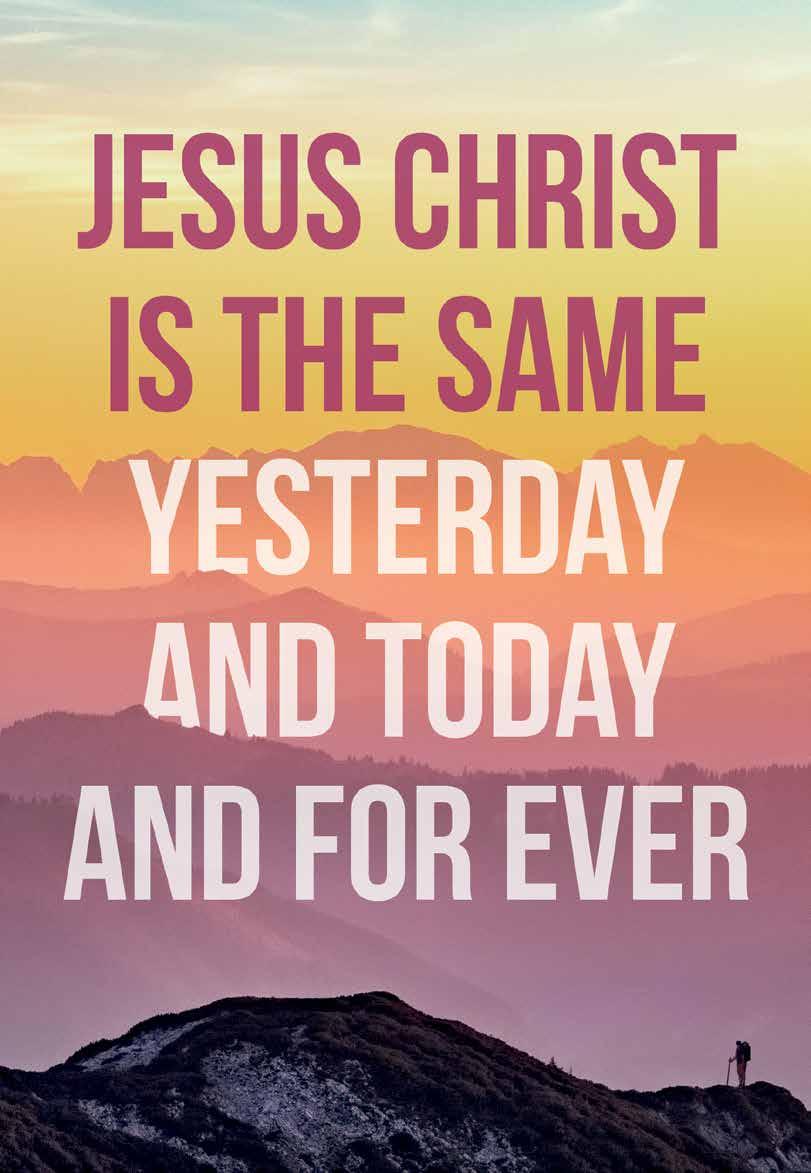
Hebrews 13:8 (New International Version)